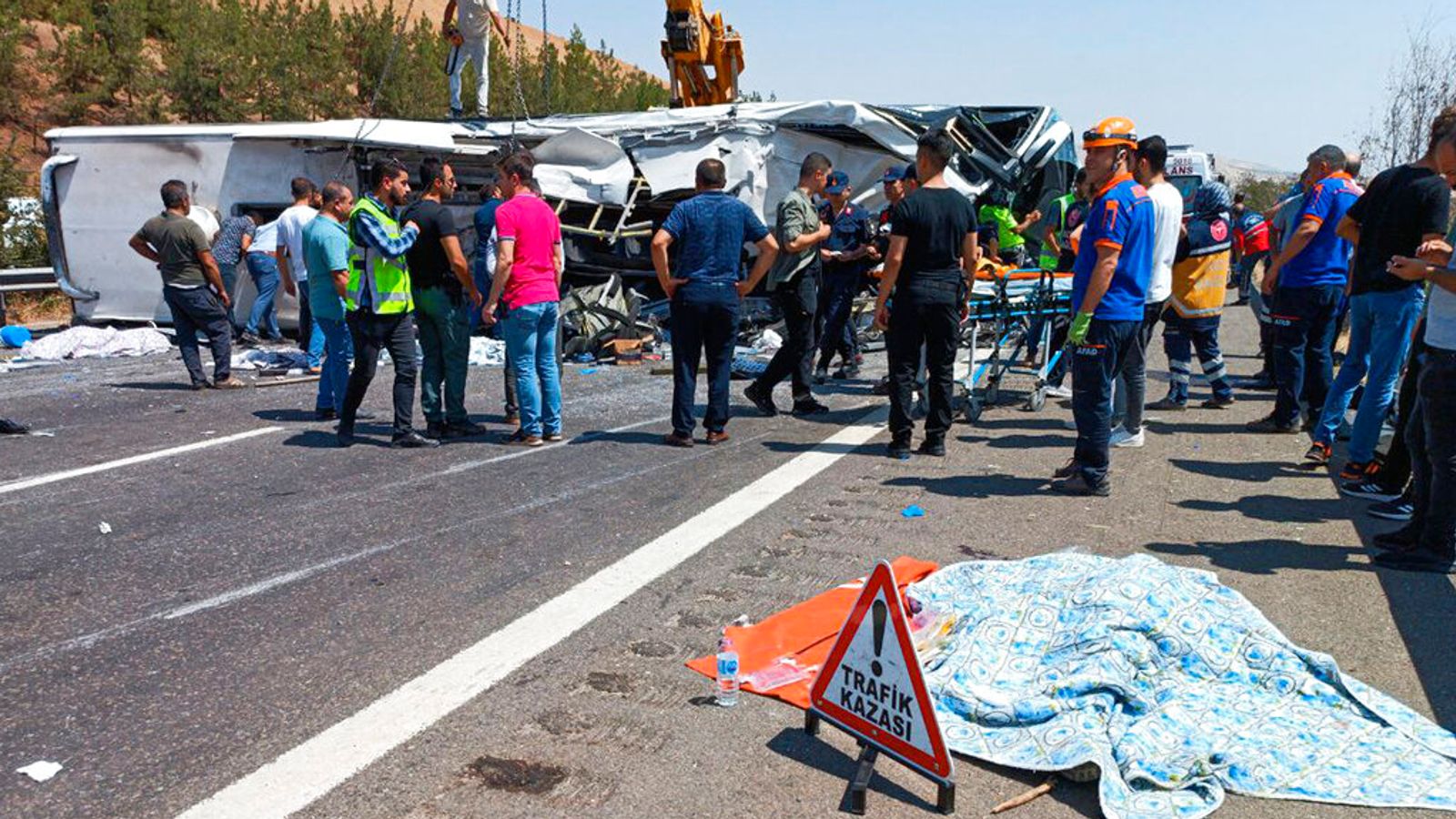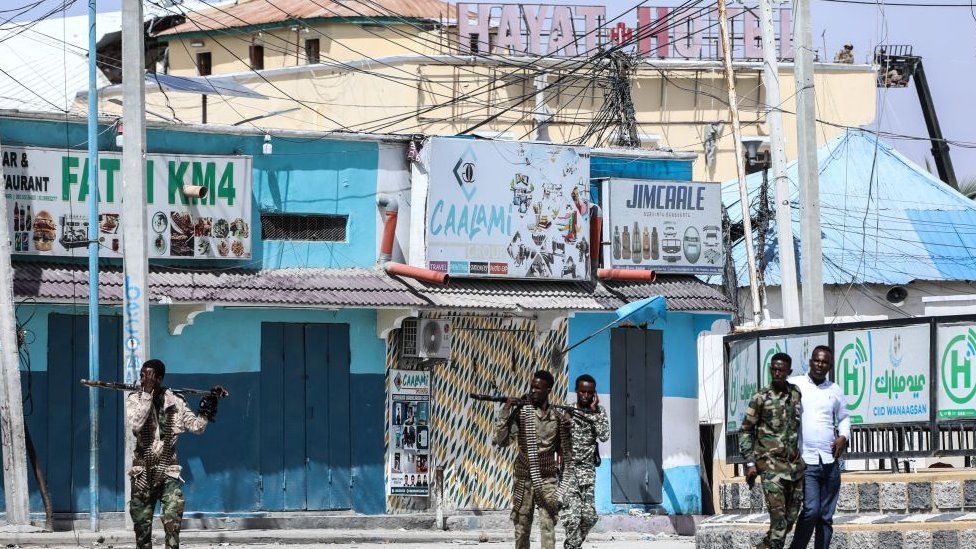Russia's failure to secure a quick victory against Ukraine forced Vladimir Putin to adapt.
Over the past six months, Russia has been fighting an information war alongside its military campaign.
How Moscow rerouted the internet
On 30 May the internet connection in occupied Kherson dropped. It returned within hours, but people could no longer access sites like Facebook, Twitter and Ukrainian news.
The internet had been rerouted to Russia. The online activity of those in Kherson was now visible to Moscow and was subject to censorship.
With the people of Kherson now forced to use Russian internet if they want to go online, they are subject to Moscow's censorship.
For three months they have been unable to access Facebook, Twitter and other social media sites. Some Ukrainian news websites are also blocked.
Alp Toker, director of Netblocks, an internet monitoring company, says the rerouting has "effectively placed Ukrainian citizens under the purview and surveillance of the Russian state at the flick of a switch."
Internet operators and monitors report internet access in large areas of Kherson is censored to a similar level as experienced in Russia. Some smaller areas are experiencing even tougher censorship, with some Google services blocked.
Ukrainians in Kherson are finding ways to evade Russia's efforts to monitor and censor their online activity.
When Ivanna (not her real name) leaves her home, she deletes social media and messaging apps like Instagram and Telegram in case she is stopped by a soldier who may search her phone.
"You need to be careful," she tells Sky News, using an online messaging app.
She goes online using a VPN (virtual private network) which hides the user's location and allows them to bypass Russian censorship.
Searches for the software spiked in Kherson when internet controls tightened.
Russia has also shut down the mobile phone network in Kherson and new SIM cards are being sold for locals to use.
Ivanna told Sky News a passport is needed to buy the sim cards, prompting fears their use may be tracked.
Cautious, she paid a stranger to buy a SIM under his name.
TV and phone communications targeted
In the unoccupied parts of Ukraine, Moscow has sought to destroy the communication infrastructure - such as TV towers and communication centres.
It's a tactic Russia initially wanted to avoid as it did not want to damage resources that would be useful as an occupying force, explains William Alberque, director of strategy, technology, and arms control for the Institute for Strategic Studies.
"Russia thought they were going to win so fast [so wouldn't] destroy infrastructure as it was going to own that infrastructure," he tells Sky News.
Subscribe to the Ukraine War Diaries on Apple Podcasts, Google Podcasts, Spotify and Spreaker
But by keeping the lines open, Ukrainians were able to communicate with one another and the wider world.
Ultimately Russia moved to destroy what it was unable to quickly seize.
Examples of the attacks on communication infrastructure have been logged by the Centre for Information Resilience, which has been tracking and verifying attacks like these using open-source information.
One incident logged by the group was a communication centre in southern Ukraine.
Russia's attempt to control information has also included targeting TV towers.
Power cuts in Ukraine have also caused the nation's biggest broadband and mobile internet providers to lose connectivity.
Disinformation has doubled since the war began
Russia has used disinformation during the war to influence those in Ukraine, the country's allies, as well as its own population at home.
Examples of pro-Russian fake news include a clumsily faked video of the Ukrainian president telling people to surrender (known as a deepfake video) and social media posts accusing bombing victims of being actors.
Some of Russia's efforts have been effective. Moscow claimed the invasion was in part to tackle nazism in the Ukrainian government. Searches for "nazi" in both Russia and worldwide spiked in the first week of the war.
The number of disinformation sites has more than doubled since the Russian invasion in February, according to Newsguard, which provides credibility rankings for news and information sites.
In March, its researchers found 116 sites publishing Russia-Ukraine war-related disinformation. By August, that number had risen to 250.
It's not possible to show that all of those sites are run on the orders of Russia, however, Moscow has allocated a boosted pot of funds for its propaganda arm.
The independent Russian-language news site The Moscow Times reported the government had "drastically increased funding for state-run media amid the war with Ukraine".
The article cited figures provided by the Russian government. It said 17.4bn rubles (£244m) had been allocated for "mass media" compared to 5.4bn rubles (£76m) the year before.
It said in March, once the war was underway, some 11.9bn rubles (£167m) were spent. This is more than twice as much as the combined spend of the two months before, which was 5bn rubles (£70m).
The research comes as no surprise to Mr Alberque, who says Russia's disinformation campaign has been "constant".
"As they shift into war mode, [Russia] has to go to directly paying salaries and no longer hoping that people will echo its messages but paying them to send a certain number of messages per day," he told Sky News.
Looking forward, Mr Alberque believes the death of the daughter of an ally of Vladimir Putin will be a distraction for those directing Russia's disinformation efforts.
Russia has pointed the finger at Ukraine for carrying out the fatal car bombing in Moscow but Kyiv denies any involvement.
An apparent high-profile assassination in the capital has sparked a number of conspiracy theories, including claims the responsibility may lie with a Russian group looking to influence the war.
"The Russian government is going to have to try to control this narrative," Mr Alberque explains.
He adds that propaganda resources that would be focused on Ukraine may now be drawn into the fallout of the death, saying: "I think it's going to be a huge information sink for them because it's going to take up time and attention."
The Data and Forensics team is a multi-skilled unit dedicated to providing transparent journalism from Sky News. We gather, analyse and visualise data to tell data-driven stories. We combine traditional reporting skills with advanced analysis of satellite images, social media and other open source information. Through multimedia storytelling we aim to better explain the world while also showing how our journalism is done.
Why data journalism matters to Sky News
https://news.google.com/__i/rss/rd/articles/CBMiiwFodHRwczovL25ld3Muc2t5LmNvbS9zdG9yeS9yZXJvdXRpbmctdGhlLWludGVybmV0LWJvbWJpbmctdHYtdG93ZXJzLWFuZC1hLWRlZXBmYWtlLXplbGVuc2t5eS1zaXgtbW9udGhzLW9mLXJ1c3NpYXMtaW5mb3JtYXRpb24td2FyLTEyNjc5MjQ00gGPAWh0dHBzOi8vbmV3cy5za3kuY29tL3N0b3J5L2FtcC9yZXJvdXRpbmctdGhlLWludGVybmV0LWJvbWJpbmctdHYtdG93ZXJzLWFuZC1hLWRlZXBmYWtlLXplbGVuc2t5eS1zaXgtbW9udGhzLW9mLXJ1c3NpYXMtaW5mb3JtYXRpb24td2FyLTEyNjc5MjQ0?oc=5
2022-08-24 01:13:59Z
1538465166


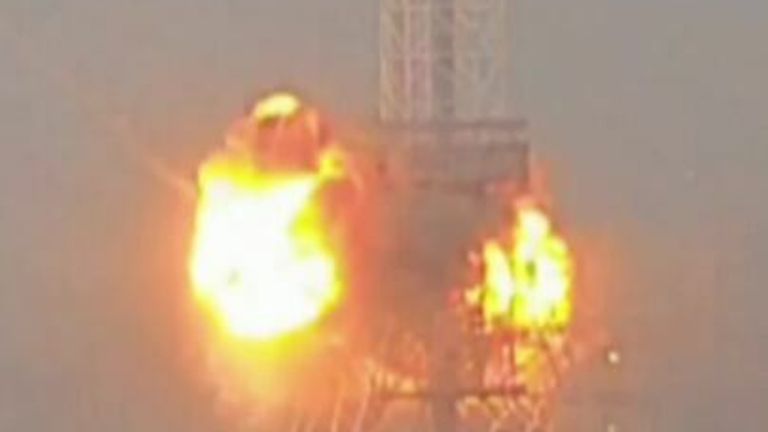
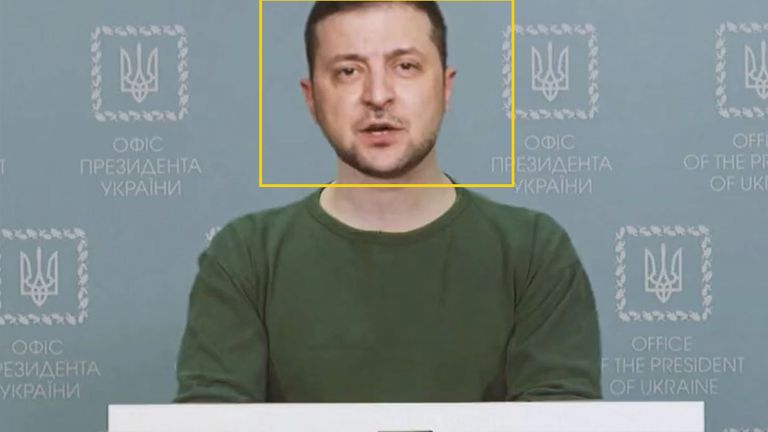
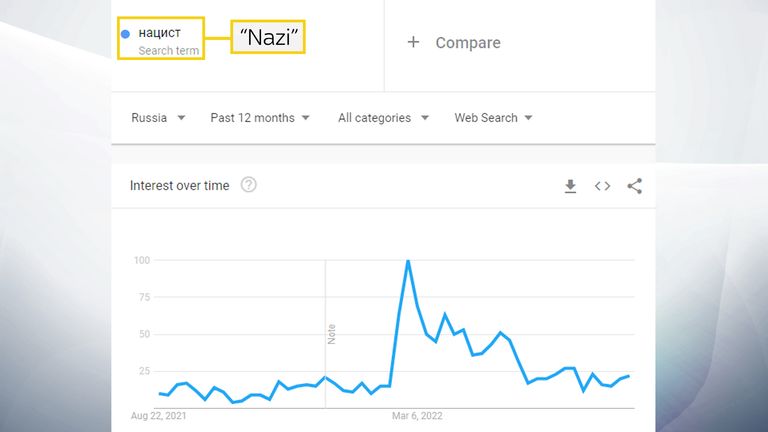
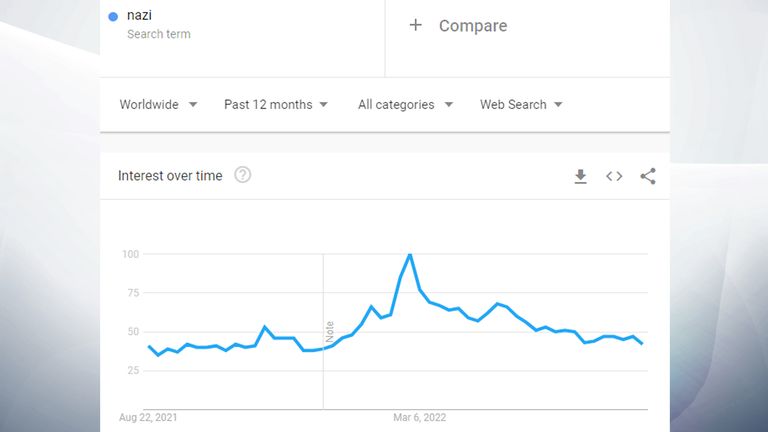
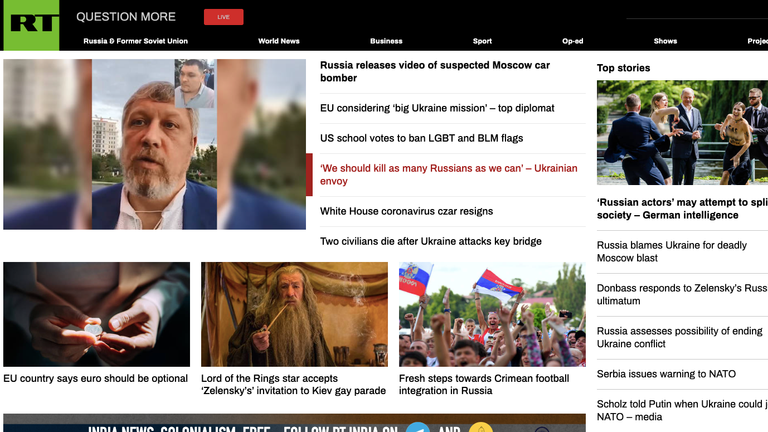


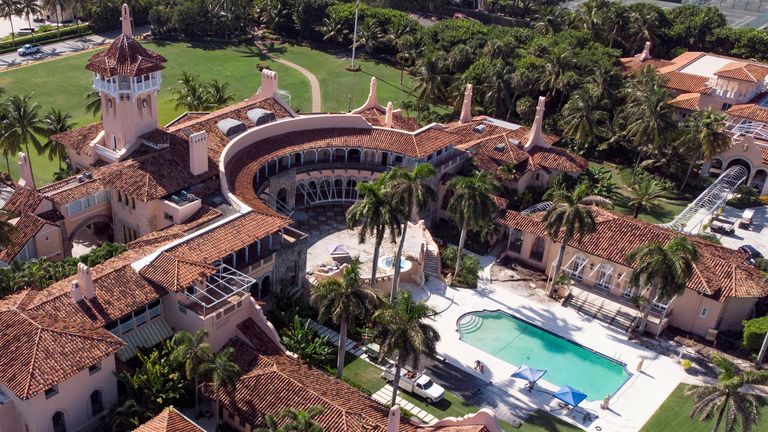

/cloudfront-us-east-2.images.arcpublishing.com/reuters/UXXDKRE4EZPSXNYLKMVV7V7VO4.jpg)
